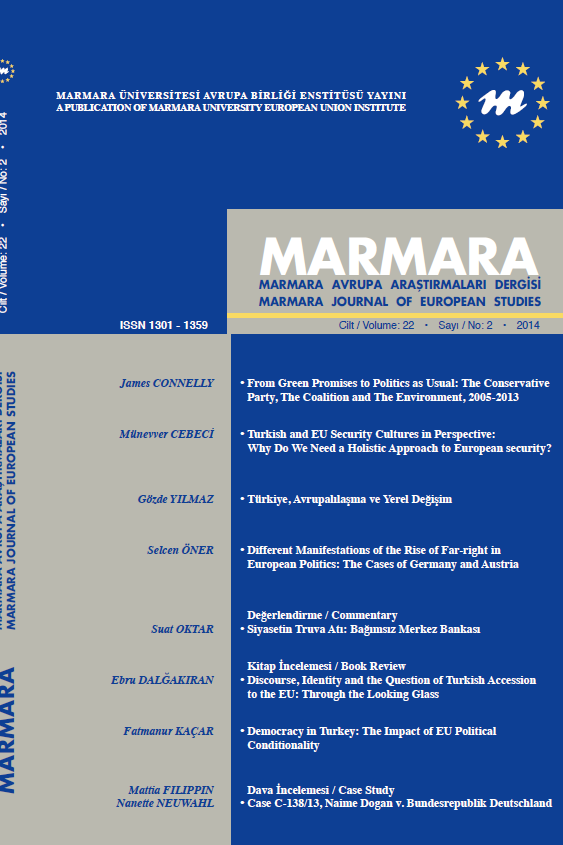TÜRKİYE VE İNGİLTERE'DE DEMİRYOLLARININ ÖZELLEŞTİRİLMESİ SÜRECİ
Turkey has a railway network 6 times shorter than the EU average. Transportation in Turkey is dominated by the road transportation both in urban and rural areas. Insufficient railway system spoils the Turkish economy in terms of misallocation of resources and inefficient income distribution. The share of the railway investments from the budget is very low compared to the share for the motorway investments. Lack of adequate railway system causes social imbalance. Everyday, the lengths of the motorways are increased and coach-based transportation system makes citizens price inelastic. The increased car ownership requires priorities on building more roads that makes Turkey more dependent on foreign countries. Restructuring and reorganisation programmes are needed to improve railways. Thus, new legislation, new strategic management, improved technology and new control mechanisms are required. Most of the proposed schemes are based on the privatisation of railways. The critical issue is how effective can privatisation be in Turkish railway system. Thus, the first example of the railway privatisation -the British Railways (BR)- is analysed.BR was privatised in early 1990s by separating the infrastructure and the operating services held by the private sector. Basic aim was the renewal of the infrastructure and the creation of competition between different operators. This would increase the efficiency both for passenger and freight transportation. The expected advantages were to create competition that would benefit consumers, promote railway as the primary transportation, create opportunities for development and investment and protect the environment.Privatisation of BR is completed and the results have highly been criticised by different groups. Private sector concentrates on special areas, train tickets are expensive and there is an increase in train delays and accidents. It is argued that the competition, the basic aim of the privatisation, is not achieved by the operating services. Due to the short-term contracts, private sector avoids making any investment on technology and recruitment Railway privatisation is different from water, gas and electricity. BR case is found unsuccessful in achieving the expected advantages of privatisation. It is a good example for showing the expected gains and losses before privatlsmg the Turkish Railways. Railway transportation is advised to be provided by a single entity, preferably by the national authority for optimum efficiency.
Anahtar Kelimeler:
-
TÜRKİYE VE İNGİLTERE'DE DEMİRYOLLARININ ÖZELLEŞTİRİLMESİ SÜRECİ
___
- -
- ISSN: 1301-1359
- Yayın Aralığı: Yılda 2 Sayı
- Yayıncı: Marmara Üniversitesi
Sayıdaki Diğer Makaleler
KÜRESELLEŞEN DÜNYADA AVRUPA MODELİ'NİN SINIRLARI VE SORUNLARI:REFAH DEVLETİ NEREYE?
BANKING PRIVATIZATION IN TURKEY
AVRUPA BİRLİĞİ GENİŞLEME SÜRECİNİN KARADENİZ EKONOMİK İŞBİRLİĞİNE ETKİLERİ
Muzaffer DARTAN, Esra HATİPOĞLU
FOREIGN DIRECT INVESTMENT IN TURKEY IN THE FRAMEWORK OF CANDIDACY TO THE EU
INTERNATIONAL CRIMINAL LAW AND THE SEPTEMBER 11 EVENTS
TÜRKİYE VE İNGİLTERE'DE DEMİRYOLLARININ ÖZELLEŞTİRİLMESİ SÜRECİ
THE TRANSFORMATION OF THE EUROPEAN PARLIAMENT
